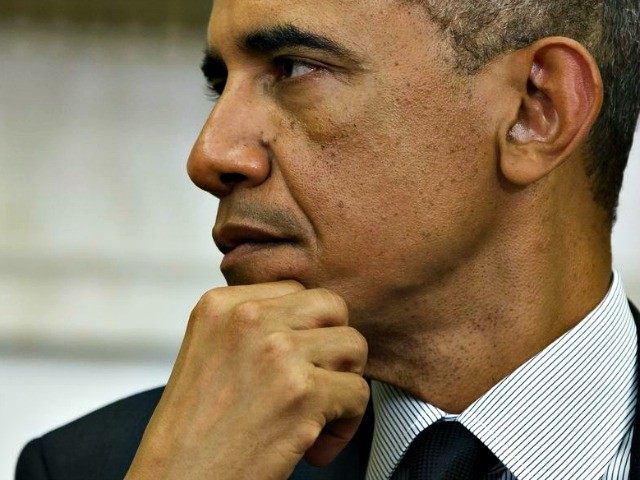When did it become the job of theater owners and movie stars to respond to terrorist threats by rogue nations? Don’t we elect a president to do that job?
After what may be the most costly, and certainly the most embarrassing attack in history, followed up by threats to commit 9/11-style attacks on American theater-goers, Sony canceled the release of it’s comedy The Interview this week. The full retreat on one North Korea-related film has already led to the cancellation of another film set to star comedian Steve Carrell that was still in the pre-production stages.
Defenders of the First Amendment are rightly outraged by what has transpired. Alan Dershowitz called it the “Pearl Harbor of the First Amendment.” Various Hollywood stars–some connected to the film and some not–have led the charge against Sony’s decision to capitulate to North Korean demands:
Saw @Sethrogen at JFK. Both of us have never seen or heard of anything like this. Hollywood has done Neville Chamberlain proud today.
— Rob Lowe (@RobLowe) December 17, 2014
While the outrage at Sony and at the theater chains that announced yesterday they would not show the film is understandable, it’s also somewhat misplaced. As blogger Ace of Spades pointed out yesterday, no one running a theater chain should be expected to handle terrorist threats:
is it really their *fault*? Theater chains were not created to fight North Korea; that’s really a job for the US government, no? @Holden114 — iLoveScienceSexually (@AceofSpadesHQ) December 17, 2014
This is, to put it bluntly, not Cinemark’s damn problem. Nor is it the problem of any of the other chains that declined to screen the film yesterday. Terrorist threats on America are not their purview. We have someone who is tasked with responding to such threats on behalf of the United States of America, i.e. the President of the United States. But where has the President been on this issue?
Stories about the Sony hack broke on November 25th, more than three weeks ago. President Obama was even name-checked more than two weeks in a racially-tinged exchange between Sony’s Amy Pascal and producer Scott Rudin. There is simply no way the President wasn’t aware of this. The media revealed earlier this month that the hackers made explicit threats against Sony employees and their families. In a taste of things to come, these threats also warned, “Many things beyond imagination will happen at many places of the world.”
On Tuesday morning of this week, the hackers upped the ante and threatened 9/11-style attacks on theaters if the film was released. Here’s a taste of what those threats sounded like:
The world will be full of fear.
Remember the 11th of September 2001.
We recommend you to keep yourself distant from the places [movie theaters] at that time.
(If your house is nearby, you’d better leave.)
And what was the president’s response? The next day, even as Sony and theater owners were deciding to pull the film in response to the threats, the NY Times reported, “The White House was debating whether to publicly accuse North Korea of what amounts to a cyberterrorism attack.” Again, this is three weeks after the hack and the initial threats on some Americans and one day after the more explicit terror threats against all of us, and the White House still hadn’t decided whether to speak up at all.
Apparently, the White House did eventually decide the president should say something. In an interview published late Wednesday, Obama told ABC News people should “go to the movies.” That might have been a helpful bit of reassurance a week or even a day earlier. But by the time this appeared online, the controversy was over. The movie that prompted both the hacking and the threats had been pulled. President Obama once again dithered in response to a crisis, and someone else was forced to respond first. In this case, that someone was Sony Pictures and, before that, the people running America’s movie chains.
The backlash against Sony and America’s theater chains isn’t without merit. We should expect a lot more from them than to fold under a threat to the First Amendment. But as disappointing as this response is, the fact remains: It was never their job to respond to a rogue state threatening terror attacks on Americans. We elected someone else to do that job, but once again the president seems to be trying to lead from behind.

COMMENTS
Please let us know if you're having issues with commenting.